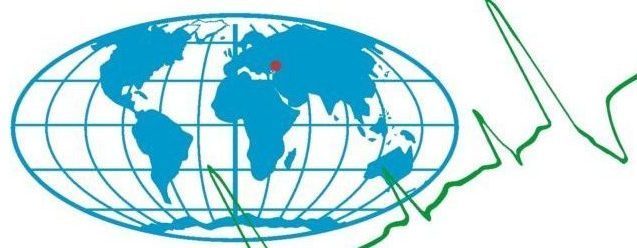A.V. Skatkov, Yu.V. Doronina, A.A. Bryukhovetskiy
Federal State Educational Institution of Higher Education «Sevastopol State University», RF, Sevastopol, Universitetskaya St., 33
E-mail: YVDoronina@sevsu.ru
DOI: 10.33075/2220-5861-2023-1-108-117
UDC 519.8
Abstract:
An approach to the development of monitoring process management methods based on the use of scenario technology is proposed, as an extension of the algorithmic approach, which enables, based on the formalization of the concept of scenario, to justify system solutions and improve technical and economic indicators in natural-technical systems. In contrast to the algorithmic approach, the scenario approach implies an active interactivity of decision-making processes based on the typification of the structural organization of the operational support of tasks. The advantages of the scenario approach relative to the algorithmic one are revealed; within the framework of the proposed definitions, the principles of constructing a correct scenario are formulated, which reduces the resource intensity of management.
The proposed scenario approach has a number of advantages:
– flexibility in terms of structural and functional (operational) components.
– orientation to the solution of scalability problems, including on the basis of the application of the principle of the permanence of the evaluation functional.
– universality, i.e., applicability to various fields related to data monitoring, for example, in the field of quality research of information telecommunication channels that are important for the functioning of unmanned vehicles.
Within the framework of the proposed definitions, the principles of constructing a correct scenario are formulated, which reduces the resource intensity of management. The scenario approach based on the introduced definitions and provisions allowed forming the basis of a systematic approach to the implementation of tasks by monitoring process management in the NTS. In tasks of this kind, the use of typical scenarios will significantly speed up decision-making when managing monitoring processes.
Keywords: scenario approach, natural-technical systems, environmental control systems, monitoring, operation mode management.
To quote:
REFERENCES
- Gaisky V.A. Nadezhnost’ i tochnost’ sistem kontrolya prirodnoj sredy (Reliability and accuracy of environmental control systems). Sistemy kontrolya okruzhayushchej sredy, Part 3. 2020. No. 4 (42), pp. 111–118. DOI: 10.33075/2220-5861-2020-4-111-118.
- Yusupov R.M. and Shishkin V.M. Informacionnaya bezopasnost’, kiberbezopasnost’ i smezhnye ponyatiya: Cyber Security vs Informacionnoj Bezopasnosti (Information security, cyber security and related concepts: Cyber Security vs Information Security). 2013, Vol. 21, No. 21, pp. 27–35.
- Okhtilev M.Yu., Sokolov B.V., and Yusupov R.M. Intellektual’nye tekhnologii monitoringa i upravleniya strukturnoj dinamikoj slozhnyh tekhnicheskih ob”ektov (Intelligent technologies of monitoring and control of structural dynamics of complex technical objects). Moscow: “Nauka”, 2006, 410 p.
- Chernyakhovsky E.R. Upravlenie ekologicheskoj bezopasnost’yu (Management of ecological safety). Moscow: Izd-vo “Al’fa-Press”, 2007, 248 p.
- GOST R 8.589-2001 State system for ensuring the unity of measurements. Control of environmental pollution. Metrological support. Basic provisions.
- GOST R 56061-2014 Industrial environmental control. Requirements for the production environmental control program.
- GOST R 56059-2014 Industrial environmental monitoring. General provisions.
- Gaisky V.A. Gidrostaticheskij differencial’nyj izmeritel’ lokal’noj plotnosti prirodnyh vod (Hydrostatic differential meter of local density of natural waters). Sistemy kontrolya okruzhayushchej sredy, 2021, Vol. 3 (45), pp. 50–58.
- Skatkov A.V., Bryukhovetsky A.A., Moiseev D.V., and Shevchenko V.I. Ocenivanie sostoyanij prirodno-tekhnicheskih sistem na osnove dinamicheskoj klasterizacii (Assessment of the states of natural and technical systems based on dynamic clustering). Sistemy kontrolya okruzhayushchej sredy, 2020, No. 1 (39), pp. 135–144.
- Borodina O. and Gvozdeva O. Monitoring prirodnyh resursov kak informacionnaya osnova ucheta i ocenki prirodnyh resursov (Monitoring of natural resources as an informational basis for accounting and evaluation of natural resources). Moskovskij ekonomicheskij zhurnal, 2016, No. 3. (November, 23, 2022).
- Kaplan S., Haimes Y.Y., and Garrick B.J. Fitting Hierarchical Holographic Modeling into the Theory of Scenario Structuring and a Resulting Refinement to the Quantitative Definition of Risk, 2001.
- Misevich P.V. Scenarno-situacionnyj podhod k proektirovaniyu sredstv intellektual’noj podderzhki processa funkcionirovaniya avtomatizirovannyh sistem (Scenario-situational approach to the design of means of intellectual support for the process of functioning of automated systems). Sistemy upravleniya i informacionnye tekhnologii, 2007, No. 2.1(28), pp. 166–171.
- Doronina Yu.V. and Skatkov A.V. Kaskadno – ierarhicheskoe modelirovanie v zadachah analiza dinamiki resursnyh harakteristik slozhnyh system (Cascade-hierarchical modeling in the problems of analyzing the dynamics of resource characteristics of complex systems). Informacionno-upravlyayushchie sistemy, Vol. 3, pp. 48–58. https://doi.org/10.31799/1684-8853-2020-3-48-58
- Prokhorov Yu.V. and Rozanov Yu.A. Teoriya veroyatnostej (Osnovnye ponyatiya. Predel’nye teoremy. Sluchajnye processy). (Theory of probabilities: Basic concepts. Limit theorems. Random processes). Moscow: “Nauka”, 1973, 496 p.
![]()
